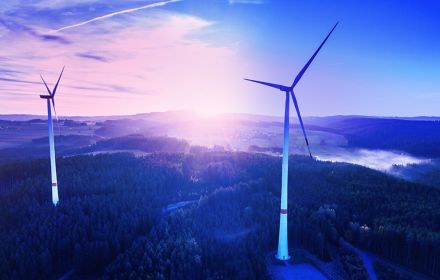Prediction
It's 2040 and the linear model that dominated the earth's economies since the industrial revolution is no more. The circular economy that emerged in response to the unsustainable practices that caused immeasurable environmental damage for over a century has taken to the forefront. It is now globally established across a broad range of sectors and manufacturing processes to support the successful deployment of net-zero emissions and the globally agreed upon standard of zero waste are in place.
Waste is no longer an acceptable by-product of progress and commerce. Zero waste laws have forced accountability ensuring companies, governments and consumers reuse products and materials to the fullest extent possible. These regulations have fundamentally changed almost every process leading to the reconstruction of most manufacturing sites and a revolution of new ideas and methodologies to govern these new practices. In most nations, consortiums of manufacturers are encouraged to share raw materials and by-products, as well as re-use returned and recycled products.
To achieve zero waste, organizations have had to look beyond just processes and facilities. The late 2020s brought significant legislation around sustainable building material and zero waste practices to the global construction industry. The 2030s introduced new technological advancements that recycled new buildings into existing ones, allowing established nations to continue their growth without impacting land availability and minimizing environmental harm. By the mid-2030s, governments around the world established policies that severely limited new land development and promoted the adoption of building consolidation and recycling technologies.
No industry has been left untouched by these changes. In the late 2020s, the packaging industry established new standards to produce packaging from compostable bio-based materials. Now, consortiums of organizations enforce the utilization of wood chips, sawdust, organic matter and recycled food waste to meet their packaging needs. Agriculture, which was historically highly centralized in designated areas and countries, has made tremendous advances, with some farming and production now being done much closer to the endpoints of the supply chain.
Throughout the 2020s, centuries of development and progress threatened the green lungs of the world's cities. Industry associations and citizens are now incentivized to invest in integrating additional green spaces within their cities, buildings, and offices. Newly affordable technologies have emerged to support the growing of crops in innovative, land-sparing ways, such as in-home greenhouses and communal green walls for household farming.
This innovation has required a significant shift in business and consumer behaviors. Goods now last longer by design, and products that leverage new technologies to achieve regeneration are highly prized. Today, the ability to create products and services that positively impact the environment is a competitive advantage and is frequently rewarded by government and industry bodies. As a result, consumers possess a heightened sense of responsibility and awareness of the entire product lifecycle.
Why did this happen?
The 2020s proved to be a significant inflection point for industries and governments as they turned away from traditional models of exploiting natural resources and maximizing profits. When global companies announced in the early 2020s their intention to target zero carbon emissions by 2040 or earlier, the momentum could not be stopped. What began in the realm of activism evolved into a worldwide commitment to a model of regenerative capitalism.
Once the world's capital markets became involved the 2030s saw technological advances evolve year over year until zero waste and regenerative economics became the norm. Governments and industry consortiums helped sustain the momentum through rewards and incentives for the research and development of environmentally positive products and services. New sensors within the Internet of Everything (IoE) ecosystem helped raise consumer awareness of how products impact the environment, and they now naturally gravitated towards zero waste options. The final tipping point came when the large companies whose businesses generated the most considerable ecological impacts, committing to change. Over time, their technological developments made renewable technologies as cost effective as the wasteful ones leading to a wholesale replacement across world markets.
Impact
Today, consortiums create holistic value chains that enable zero-waste manufacturing and delivery models while also emphasizing reusability through product lifecycles. The concept of garbage no longer exists because only those products that can be reused and recycled are accepted. There has been a complete redesign of central manufacturing process across the industrial spectrum and accounting rules have also evolved to consider reusability as part of the net value of products and services. Companies and consumers can now more accurately measure their waste and track advanced metrics concerning the use of recyclable materials.
The impacts of the circular economy extend far beyond business and economics. Population centers enjoy more green space while building consolidation efforts and limits on new land acquisition have helped address the supply shortages that had previously made homes unaffordable for so many.
Related content
Contacts
Author

Julia Endres
KPMG in Germany
Sign up to be notified for new content
The email address you've entered is already tied to an existing account. Please enter your password to log in.
KPMG thought leadership is always available to our registered users
You’ve successfully logged in.
Please close this pop-up to return to the page.
Please provide the following information to register.








